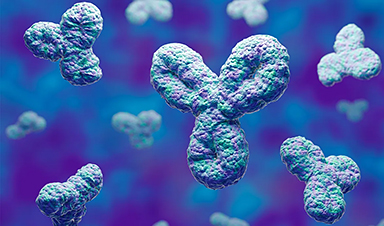Canadian biopharma company Medicago, a subsidiary of Japan’s Mitsubishi Tanabe Pharma (TYO: 4508), and UK pharma major GlaxoSmithKline (LSE: GSK) have announced that Health Canada has granted approval for Covifenz, COVID-19 vaccine, (plant-based virus-like particles [VLP], recombinant, adjuvanted).
This vaccine, formerly dubbed MT-2766, is indicated for active immunization to prevent coronavirus disease 2019 (COVID‑19) caused by severe acute respiratory syndrome coronavirus 2 (SARS‑CoV‑2) in individuals 18 to 64 years of age.
Medicago received C$173 million ($131 million) from the Canadian government to help develop its plant derived virus-like particle (VLP) vaccine, MT-2766.
“The approval of our COVID-19 vaccine is a significant milestone for Canada in the fight against the pandemic. We appreciate Health Canada’s timely review,” said Takashi Nagao, president and chief executive at Medicago. “We’re also grateful for the government of Canada’s support in the development of this new vaccine, and we are manufacturing doses to start fulfilling its order,” he added.
Roger Connor, president of GSK Vaccines, added, “This first approval is an important milestone in our approach of pairing GSK’s well-established pandemic adjuvant with promising antigens to develop protein-based, refrigerator-stable COVID-19 vaccines to help protect people against COVID-19 disease. We look forward to working with Medicago to make the vaccine available in Canada and to progress further regulatory submissions.”
Government supply contract
The Canadian government has a contract with Medicago (the Marketing Authorization Holder) to supply the COVID-19 vaccine. Medicago says it is committed to fulfilling this order as soon as possible.
“As one of our government’s top priorities has been to reverse the 40-year decline faced by Canada’s biomanufacturing sector, we are pleased to see Medicago’s vaccine approval. It is a great milestone for Canada’s biotechnology sector and for homegrown innovation. We will continue to support companies that want to produce vaccines in Canada and join the growing national biomanufacturing sector.” said François-Philippe Champagne, Canada’s Minister of Innovation, Science and Industry.
Health Canada based its decision on scientific data shared by Medicago as part of their rolling submission that began in April 2021 under an Interim Order, and concluded with the filing of a New Drug Submission-CV.
About Covifenz
Covifenz uses Coronavirus-Like Particle (CoVLP) technology with the vaccine composed of recombinant spike (S) glycoprotein expressed as virus-like particles (VLPs) co-administered with GSK’s pandemic adjuvant. The vaccination regimen calls for two doses given intramuscularly 21 days apart (3.75mcg of CoVLP antigen in combination with GSK pandemic adjuvant in the same injection). The vaccine is stored at 2 °C to 8 °C. Covifenz antigen will be manufactured in Canada and in North Carolina (USA).
Covifenz is not currently approved or authorized for the prevention of COVID-19 or any other indication anywhere other than Canada.
News
Specially engineered antibody delivers RNA therapy to treatment-resistant tumors
Elias Quijano, PhD; Diana Martinez-Saucedo, PhD; Zaira Ianniello, PhD; and Natasha Pinto-Medici, PhD, there are 25 other contributors, most from Yale's Department of Therapeutic Radiology and from the departments of genetics, molecular biophysics and [...]
Vaccinated women face fewer cervical cancer risks
New data from Denmark shows the HPV vaccine’s powerful long-term impact, while also revealing why cervical cancer screening is still essential. A Danish study published in the journal Eurosurveillance reports that women who received the human [...]
3D-printed implant offers a potential new route to repair spinal cord injuries
A research team at RCSI University of Medicine and Health Sciences has developed a 3-D printed implant to deliver electrical stimulation to injured areas of the spinal cord, offering a potential new route to [...]
Nanocrystals Carrying Radioisotopes Offer New Hope for Cancer Treatment
The Science Scientists have developed tiny nanocrystal particles made up of isotopes of the elements lanthanum, vanadium, and oxygen for use in treating cancer. These crystals are smaller than many microbes and can carry isotopes of [...]
New Once-a-Week Shot Promises Life-Changing Relief for Parkinson’s Patients
A once-a-week shot from Australian scientists could spare people with Parkinson’s the grind of taking pills several times a day. The tiny, biodegradable gel sits under the skin and releases steady doses of two [...]
Weekly injectable drug offers hope for Parkinson’s patients
A new weekly injectable drug could transform the lives of more than eight million people living with Parkinson's disease, potentially replacing the need for multiple daily tablets. Scientists from the University of South Australia [...]
Most Plastic in the Ocean Is Invisible—And Deadly
Nanoplastics—particles smaller than a human hair—can pass through cell walls and enter the food web. New research suggest 27 million metric tons of nanoplastics are spread across just the top layer of the North [...]
Repurposed drugs could calm the immune system’s response to nanomedicine
An international study led by researchers at the University of Colorado Anschutz Medical Campus has identified a promising strategy to enhance the safety of nanomedicines, advanced therapies often used in cancer and vaccine treatments, [...]
Nano-Enhanced Hydrogel Strategies for Cartilage Repair
A recent article in Engineering describes the development of a protein-based nanocomposite hydrogel designed to deliver two therapeutic agents—dexamethasone (Dex) and kartogenin (KGN)—to support cartilage repair. The hydrogel is engineered to modulate immune responses and promote [...]
New Cancer Drug Blocks Tumors Without Debilitating Side Effects
A new drug targets RAS-PI3Kα pathways without harmful side effects. It was developed using high-performance computing and AI. A new cancer drug candidate, developed through a collaboration between Lawrence Livermore National Laboratory (LLNL), BridgeBio Oncology [...]
Scientists Are Pretty Close to Replicating the First Thing That Ever Lived
For 400 million years, a leading hypothesis claims, Earth was an “RNA World,” meaning that life must’ve first replicated from RNA before the arrival of proteins and DNA. Unfortunately, scientists have failed to find [...]
Why ‘Peniaphobia’ Is Exploding Among Young People (And Why We Should Be Concerned)
An insidious illness is taking hold among a growing proportion of young people. Little known to the general public, peniaphobia—the fear of becoming poor—is gaining ground among teens and young adults. Discover the causes [...]
Team finds flawed data in recent study relevant to coronavirus antiviral development
The COVID pandemic illustrated how urgently we need antiviral medications capable of treating coronavirus infections. To aid this effort, researchers quickly homed in on part of SARS-CoV-2's molecular structure known as the NiRAN domain—an [...]
Drug-Coated Neural Implants Reduce Immune Rejection
Summary: A new study shows that coating neural prosthetic implants with the anti-inflammatory drug dexamethasone helps reduce the body’s immune response and scar tissue formation. This strategy enhances the long-term performance and stability of electrodes [...]
Scientists discover cancer-fighting bacteria that ‘soak up’ forever chemicals in the body
A family of healthy bacteria may help 'soak up' toxic forever chemicals in the body, warding off their cancerous effects. Forever chemicals, also known as PFAS (per- and polyfluoroalkyl substances), are toxic chemicals that [...]
Johns Hopkins Researchers Uncover a New Way To Kill Cancer Cells
A new study reveals that blocking ribosomal RNA production rewires cancer cell behavior and could help treat genetically unstable tumors. Researchers at the Johns Hopkins Kimmel Cancer Center and the Department of Radiation Oncology and Molecular [...]





















